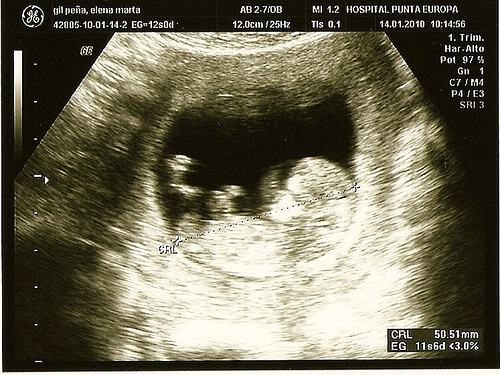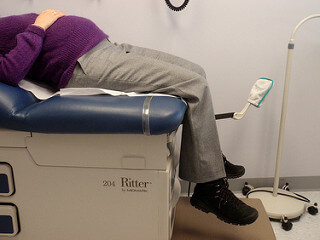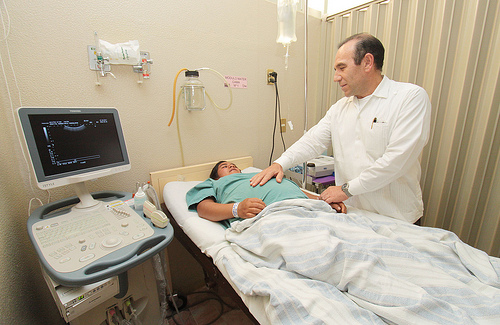Innovative Techniques To Detect Pregnancy Complications

With the help of innovative techniques, medical specialists are able to detect pregnancy complications that may arise, as well as correct or prevent them from happening.
All pregnancies, even those that develop normally, require medical attention in order to accompany and guarantee a healthy delivery.
A few years ago, many of the routine procedures that are now used to assess prenatal conditions did not exist.
Nowadays, there are many sophisticated methods that can be used to determine significant complications such as Down syndrome which is a chromosomal anomaly.
It is absolutely necessary for all expectant mothers to regularly attend their doctor appointments. However, everyone has the right to deal with their pregnancy in their own way.
Some mothers believe they can also achieve satisfactory results naturally without the help of their doctor.
It is also known that most pregnancies don’t require urgent medical intervention. However, the development of prenatal tests has increased and diversified in many aspects which are important to know for your child’s health.
Prenatal testing for possible pregnancy complications
These tests are related to evaluation procedures that specialists use in order to determine if there are possible problems with the baby or the mother.
They allow us to know whether it is important to make a certain diagnosis. Although they don’t tell us what is happening, they do tell us that a more in-depth evaluation is needed.

There should be no worrying when it comes to performing a screening test. These tests are done regularly even when there are no problems.
However, they are useful when it comes to promptly identifying possible abnormalities. They can be used to detect maternal and fetal problems, and also to detect birth defects.
Screening tests also vary according to the stage of gestation. Some tests are specific and useful during the first trimester of pregnancy and others are for the second.
They are especially useful in certain cases such as high amounts of amniotic fluid or polyhydramnios, medical pathologies such as anemia, the identification of congenital defects and also when dealing with the threat of miscarraiges.
Innovative techniques to detect pregnancy complications

As we previously stated, screening tests are recommended even when the pregnancy is developing normally. They are very useful in order to deal with and prevent unexpected problems.
There are risks associated with all stages of pregnancy. It is also important to keep in mind the fact that sometimes mothers feel afraid when it comes time to undergo certain tests.
Below we’ll briefly describe what these procedures consist of, and we’d also like to emphasize that everyone has the right to undergo them or not.
Ultrasound:
It is a very common procedure which is useful both to detect problems and also to obtain the first image of your baby.
This procedure allows the couple to find out their baby’s gender. It also allows for the detection of early anomalies such as heart defects and chromosomal alterations.
Second-level ultrasounds are tests that are recommended in order to closely observe the possible defects that the fetus might present. Second-level ultrasounds are suggested when screening tests indicate possible anomalies.
It is a non-invasive technique which is obtained through an apparatus that creates an image using waves. The waves do not hurt the baby, and allow for the observation of inside the uterus.
Chorionic villi analysis or CVS:
This innovative test is suggested when abnormalities have been detected during the routine assessments of the first trimester. It is also indicated in high-risk pregnancies.
The test consists of analyzing a sample of chorionic villi which is nothing more than tissue from the placenta.
In order obtain the tissue sample, there are two possible routes: trans-cervical or trans-abdominal. The route is applied depending on the characteristics of the pregnancy.
This procedure represents certain risks that can sometimes cause mothers to worry.
However, it is an important test that can determine all the genetic or chromosomal complications that may affect the fetus. This includes Cystic Fibrosis, Down Syndrome and the Turner Syndrome.
Blood tests:
Although this is quite a common procedure, new innovations have been made which allow for the measurement of certain types of proteins in the mother’s bloodstream. This allows for the diagnosis of chromosomal alterations and general defects.
The key to this procedure is found in specialized analysis to identify high or low levels of plasma protein A and human chorionic gonadotropin. Both of these elements can sometimes be related to certain defects.
It is an early detection technique, non-invasive and simple to perform. However, the analysis of the results requires advanced methods.
Amniocentesis:
Amniocentesis is a procedure which allows for the detection of genetic and chromosomal alterations. It is specifically useful in the diagnosis of congenital defects that affect the neural tube.
This test is typically carried out during the first trimester and it consists of the extraction of a small quantity of amniotic fluid. The analysis of the fluid is based on the measurement of proteins such as the alpha-fetoprotein and the acetilcolinetrate enzyme.
The concentrations of these substances can identify possible complications such as Espina bifida, Gastrosquisis, Ancefalia and Down Syndrome.